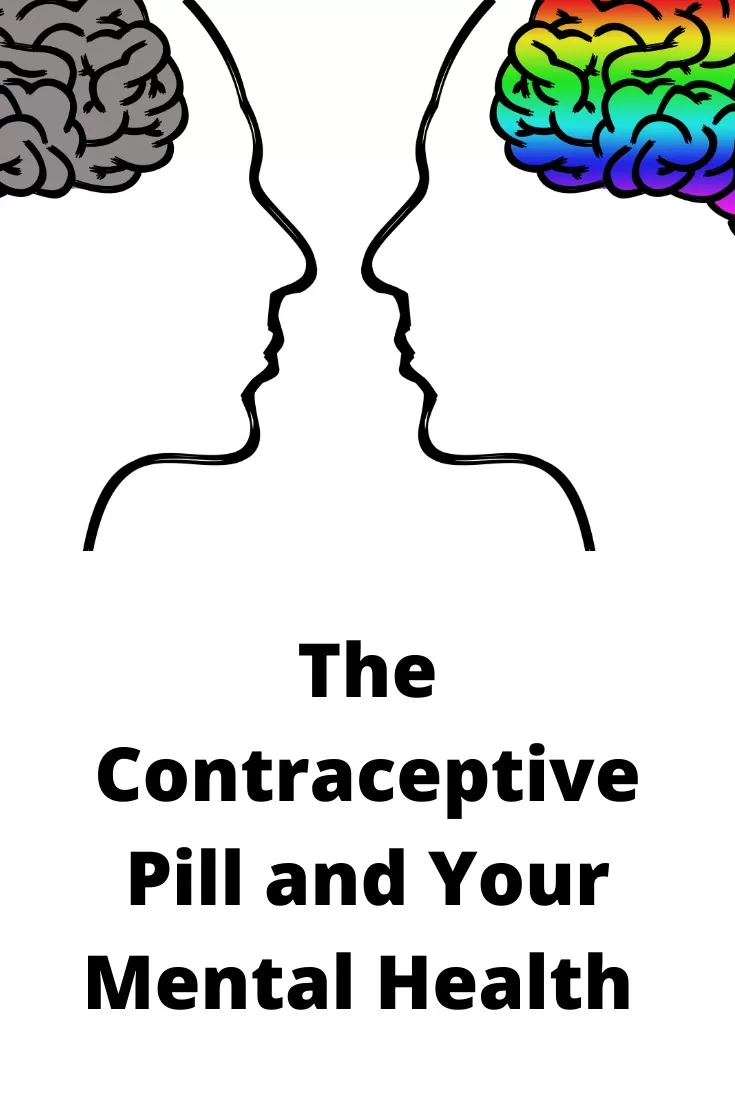Mental health and contraceptive pills are topics that have sparked significant conversation in recent years, particularly as women increasingly share their experiences with mood changes and emotional wellbeing while on hormonal birth control. Many find themselves questioning the effects of contraceptive pill side effects, which seem to vary widely from individual to individual. Research indicates a potential link between oral contraceptive mental health and conditions such as anxiety and depression, with some studies suggesting that the contraceptive pill may influence mood changes in susceptible individuals. The implications of these findings have led to increased scrutiny of hormonal birth control, prompting many to reconsider their contraceptive options. As awareness grows, it’s essential to navigate the complex relationship between these pills and mental health to make informed health choices.
The correlation between birth control methods and psychological well-being is gaining attention, as many individuals look beyond mere pregnancy prevention. The impact of hormonal contraceptives on emotional stability is becoming a topic of interest in women’s health discussions. Notably, concerns surrounding the outcomes of hormonal contraception on mental clarity and mood disturbances have invited further inquiry. Some researchers delve into how these medications affect neurotransmitters and hormonal balance, potentially altering one’s mental state. As societal norms evolve, exploring the connection between reproductive health and mental wellness remains crucial for women who seek control over their bodies and minds.
Understanding the Connection Between Mental Health and Contraceptive Pills
Recent studies have unearthed a compelling connection between mental health and contraceptive pills, particularly focusing on their impact on mood changes. Many young women report experiencing significant alterations in their emotional states after starting oral contraceptives, leading to discussions surrounding the potential side effects. For instance, a study conducted in Denmark found that women who began using the combined pill were 70% more likely to be prescribed antidepressants shortly thereafter, indicating that hormonal birth control could be intricately linked to psychological well-being.
The complexity of hormonal effects on the brain cannot be ignored. Hormones present in contraceptive pills can modify neurotransmitter activities responsible for mood regulation. For example, serotonin, often dubbed the ‘feel-good’ neurotransmitter, has shown altered signaling pathways in women taking these pills, which may explain some reported depressive symptoms. Such findings underscore the need for an informed approach when it comes to contraceptive choices, ensuring that women are aware of potential mental health consequences.
The Rise of Social Media Awareness on Contraceptive Side Effects
Social media has played a pivotal role in bringing to light the mental health concerns associated with contraceptive pills. Movements featuring hashtags like #quittingbirthcontrol have gained traction, allowing women to share their experiences and concerns regarding mood changes and mental health issues linked to hormonal contraceptives. This collective voice has prompted a broader societal discourse about the potential side effects of these contraceptives, pushing women to consider alternatives beyond the mainstream options available.
Unfortunately, this growing awareness also comes with the spread of misinformation. Some influencers without medical expertise have prompted women to stop using contraceptives altogether, potentially leading to adverse outcomes such as an increase in unplanned pregnancies. It is crucial that women access accurate information about the side effects of the pill, including potential impacts on mental health, so that they can make well-informed decisions regarding their bodies and health.
Research into the mental side effects of contraceptive pills remains ongoing, and social media will likely continue to shape the conversation around healthy contraceptive practices.
Hormonal Birth Control’s Influence on Mood Regulation
Hormonal birth control methods, including the combined and mini-pills, work by introducing synthetic hormones into the body, which can disrupt natural hormonal cycles. This disruption may lead to unexpected mood changes in some users. Research suggests that these hormonal fluctuations can affect levels of neurotransmitters like serotonin, which is critical in regulating mood and emotional stability. The insights gathered from neurobiological studies help elucidate how hormonal contraceptives can lead to mood disturbances for certain women.
Additionally, the stress response can also be altered by these contraceptives, potentially exacerbating feelings of anxiety and depression among users. In fact, studies have indicated that the hormonal alterations can blunt cortisol responses, impacting how women manage stress and anxiety over time. For many, these changes can result in a detrimental spiral of mental health issues, making it imperative for healthcare providers to thoroughly discuss potential side effects with patients before prescribing hormonal birth control options.
Research on Mental Health and Contraceptive Use
Studies examining the mental health implications of contraceptive use have produced mixed results, leading to a complicated landscape of understanding. For instance, recent cohort studies demonstrated that women who begin taking hormonal contraceptives may notice a rise in depression rates, particularly those under 20. However, inconsistencies in findings highlight the need for further rigorous research on this topic; a few studies have even shown minimal links between depression and hormonal contraceptives.
This discrepancy suggests that individual factors, such as genetic predispositions or existing mental health conditions, might significantly influence how different women react to hormonal birth control. For example, women with pre-existing mental health issues might experience exacerbated symptoms when using contraceptives, warranting more personalized treatment plans that account for mental health history. Hence, ongoing research is crucial to better understand how contraceptive pills impact mental health across diverse populations.
Adolescent Girls: A Sensitive Demographic for Contraceptive Side Effects
Adolescent girls represent a particularly vulnerable group when it comes to the mental health impacts of contraceptive pills. Studies indicate that young women aged 15 to 19 are at a heightened risk of receiving antidepressant prescriptions after starting hormonal birth control. This stark statistic raises concerns among healthcare providers about the potential psychological effects that starting the pill could have during these formative years.
Additionally, the hormonal fluctuations experienced by teenage girls can significantly impact their developing brains. With fluctuating hormones, young women might be more susceptible to mood disorders while using hormonal contraceptives. Thus, it’s essential for healthcare professionals to engage in open discussions with adolescent patients regarding their mental health and contraceptive options, ensuring they make informed choices that consider both effectiveness and well-being.
The Complexity of Mental Health Assessments in Research Studies
Assessing the mental health effects of contraceptive pills presents unique challenges in research. Many studies are cohort-based, highlighting correlations but struggling to establish direct causative relationships between contraceptive use and mental health outcomes. This ambiguity is compounded by subjective assessments of mental health, as symptoms like anxiety and depression vary widely among individuals, influenced by personal experiences and backgrounds.
Moreover, with numerous brands and formulations of hormonal contraceptives available, scientists often find themselves comparing products with different hormonal compositions. This complicates the ability to draw broad conclusions about the mental health effects of oral contraceptives. Thus, rigorous, standardized methodologies are critical to moving forward in this research area, ensuring that women receive data-driven guidance on the impacts of these contraceptive options.
Alternatives to Hormonal Contraceptives: Exploring Non-Hormonal Options
Given the potential mental health implications of hormonal contraceptives, many women may be seeking non-hormonal alternatives. Options such as copper intrauterine devices (IUDs), condoms, or fertility awareness methods provide effective birth control without the associated hormonal side effects. These alternatives not only mitigate anxiety about mood changes but can also empower women to take charge of their reproductive health without compromising their mental well-being.
It is essential for individuals to explore various contraceptive methods to find what works best for them personally, based on their health needs and lifestyle. Healthcare providers play a crucial role in guiding patients through these options, helping them assess the benefits and potential drawbacks of each method. By promoting informed choice, women can make decisions that align better with their mental and physical health.
Navigating Contraceptive Choices: A Personalized Approach
When considering contraceptive options, women should prioritize a personalized approach. With a diverse range of hormonal and non-hormonal contraceptives available, finding the right fit requires both individual consideration and consultation with healthcare providers. Understanding potential mental health impacts while choosing a contraceptive method is important, as what works for one individual may not be suitable for another, particularly regarding hormonal birth control.
Informed decision-making is key. Women should monitor their mental health closely in relation to contraceptive use, especially during the initial months. Should mood disturbances arise, it is paramount to seek guidance from healthcare practitioners who can help identify solutions tailored to individual needs, enhancing both reproductive freedom and emotional well-being.
The Importance of Communication Between Patients and Providers
Effective communication between patients and healthcare providers is essential when discussing contraceptive options, especially concerning mental health implications. Women should feel empowered to voice their concerns regarding how contraceptives may affect their mood and mental wellness. Open dialogues can lead to the exploration of different options, enabling healthcare practitioners to suggest alternatives based on individual needs and preferences.
Healthcare providers are tasked with ensuring that patients are well-informed about the potential side effects of contraceptive pills, including mental health dimensions. By fostering transparent communication, providers can also help administer a more supportive environment for women, guiding them towards options that align with their health goals and mitigate mental health risks.
Frequently Asked Questions
What are the potential mental health effects of contraceptive pill side effects?
Research suggests that some women may experience mood changes while using contraceptive pills. Studies indicate that women on the combined pill may be at a higher risk of developing depression or anxiety. A Danish study found that women using the combined pill were 70% more likely to be prescribed antidepressants compared to non-users. However, the impact can vary widely among individuals.
Can oral contraceptive mental health issues lead to serious conditions like depression?
Yes, there is evidence to suggest a correlation between the use of hormonal birth control and increased rates of depression. A comprehensive study indicated that women who started taking the combined pill had a 71% higher likelihood of experiencing depression within two years. However, it is important to note that not all women will experience these symptoms.
What are the mood changes contraceptives can cause?
Mood changes associated with contraceptives can include increased anxiety, depression, and irritability. These changes are thought to stem from hormonal fluctuations caused by synthetic hormones in the pills, which can affect neurotransmitter systems that regulate mood, leading some women to report diminished emotional well-being.
Are the effects of birth control on mood significant for all women?
No, the effects of hormonal contraceptives on mood are not uniform. While some studies highlight a significant association between contraceptive use and mental health issues, others report minimal effects. The reaction to different contraceptive methods can vary based on individual health profiles, making it essential for women to monitor their mental health when starting new contraceptives.
Do hormonal contraceptives affect serotonin levels in women?
Yes, studies suggest that oral contraceptives can lower serotonin signaling levels in the brain. This decrease may contribute to mood disorders such as depression, making it crucial for women to be aware of potential changes in their mental health when using hormonal birth control.
What should women consider regarding mental health before starting a contraceptive pill?
Women should discuss their mental health history with healthcare providers when considering contraceptive pills. Those with a history of depression or anxiety may be at greater risk of experiencing side effects from hormonal birth control. Monitoring mood changes and discussing any concerns with a healthcare professional can help in finding the right contraceptive method.
Can switching from the contraceptive pill improve mental health?
Switching from hormonal contraceptives may lead to improvements in mental health for some individuals. Research shows that women who discontinue birth control may experience a notable shift in mood, with some reporting enhanced emotional well-being after stopping the pill. However, this is subjective and can vary widely among users.
What alternatives to hormonal contraceptives exist for women concerned about mental health?
Women seeking alternatives to hormonal birth control can consider non-hormonal options such as condoms, copper IUDs, or fertility awareness methods. These methods do not impact hormonal balance, thereby avoiding potential mental health side effects associated with hormonal contraception.
What role does personal experience play in the effects of hormonal birth control on mood?
Personal experience plays a significant role in how individuals respond to hormonal contraceptives. Factors such as genetic predispositions, mental health history, and lifestyle choices can all influence how women react to the hormones in contraceptive pills, highlighting the need for personalized contraceptive counseling.
How can women manage potential mental health side effects from the pill?
To manage potential mental health side effects, women should maintain open communication with their healthcare providers about their moods and any symptoms they experience after starting hormonal contraception. Adjusting the dosage, switching pills, or exploring non-hormonal methods may provide better mental health outcomes.
| Key Points | |
|---|---|
| Concerns about Mental Health | Some women report mood changes after starting contraceptive pills, and some studies suggest an increased risk of depression, especially among younger users. |
| Research Findings | Various studies report conflicting results; for example, a Danish study found that women starting the combined pill were significantly more likely to be prescribed antidepressants. |
| Types of Pills | There are two main types of contraceptive pills: combined (estrogen and progestin) and progestogen-only (mini-pill). Both can have differing impacts on mood. |
| Impact on Brain Chemistry | Pills can disrupt natural hormone production and affect serotonin levels, which may explain mood changes in some women. |
| Need for Medical Consultation | Women are advised to monitor mood changes when starting or switching contraceptives and consult a healthcare provider if issues arise. |
| Alternatives Available | There are non-hormonal contraceptive options available, including condoms and copper IUDs, which may be more suitable for some women. |
Summary
Mental health and contraceptive pills are closely intertwined, with many women expressing concerns about the pills’ effects on their mood and mental well-being. While some studies indicate a potential link between certain contraceptives and an increased risk of depression, others show minimal connections. It’s crucial for women to be informed and to track their mental health after starting or switching contraceptive methods. Consulting a healthcare provider can help find the most suitable contraceptive solution and mitigate possible side effects.
The content provided on this blog (e.g., symptom descriptions, health tips, or general advice) is for informational purposes only and is not a substitute for professional medical advice, diagnosis, or treatment. Always seek the guidance of your physician or other qualified healthcare provider with any questions you may have regarding a medical condition. Never disregard professional medical advice or delay seeking it because of something you have read on this website. If you believe you may have a medical emergency, call your doctor or emergency services immediately. Reliance on any information provided by this blog is solely at your own risk.








